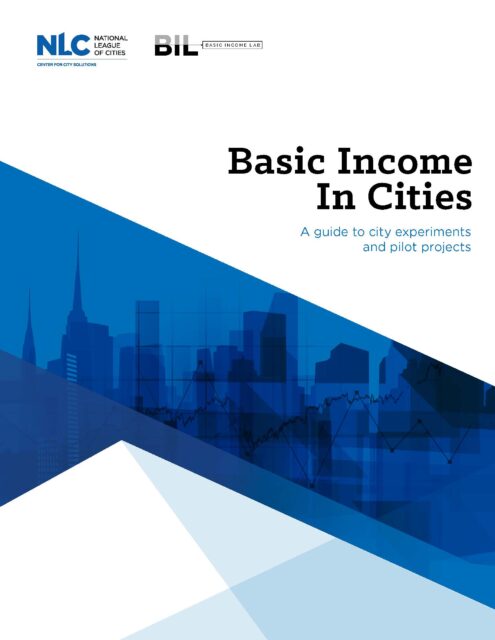Cities are uniquely positioned to lead the country forward through innovation and ferocious experimentation. It is apparent that the nation will need a social welfare system built for this new century and its specific challenges. One proposal governments are exploring is a policy now widely known as “universal basic income,” or UBI. The proposal represents a scalable solution that can help us reimagine and improve our social safety net, while encouraging us to reflect on the deeply changing nature of work.
A range of policy interventions will be needed to tackle these challenges and usher in a future without dramatic labor displacement, unemployment and precarious work. We should not entertain the fantasy that a single policy will tackle all of the above-mentioned challenges. Nonetheless, there is growing evidence that UBI may be uniquely placed to address some of them. This policy guide is intended to extend the conversation surrounding the role that cities can play in increasing equity through local experimentation.
Universal basic income (UBI) is a cash payment granted to all members of a community on a regular basis, regardless of employment status or income level. It is meant to be individual, unconditional, universal and frequent. The proposal has been extensively discussed recently in the American context by those growing wary of automation- and AI- induced unemployment and economic insecurity. UBI, according to many in Silicon Valley, could be part of the solution because it would ease the transition for those at risk of work displacement, stabilize incomes across the board and enable residents to pursue retraining and alternative forms of work.
Read NLC’s UBI guide to find out how to pilot it in your city.
